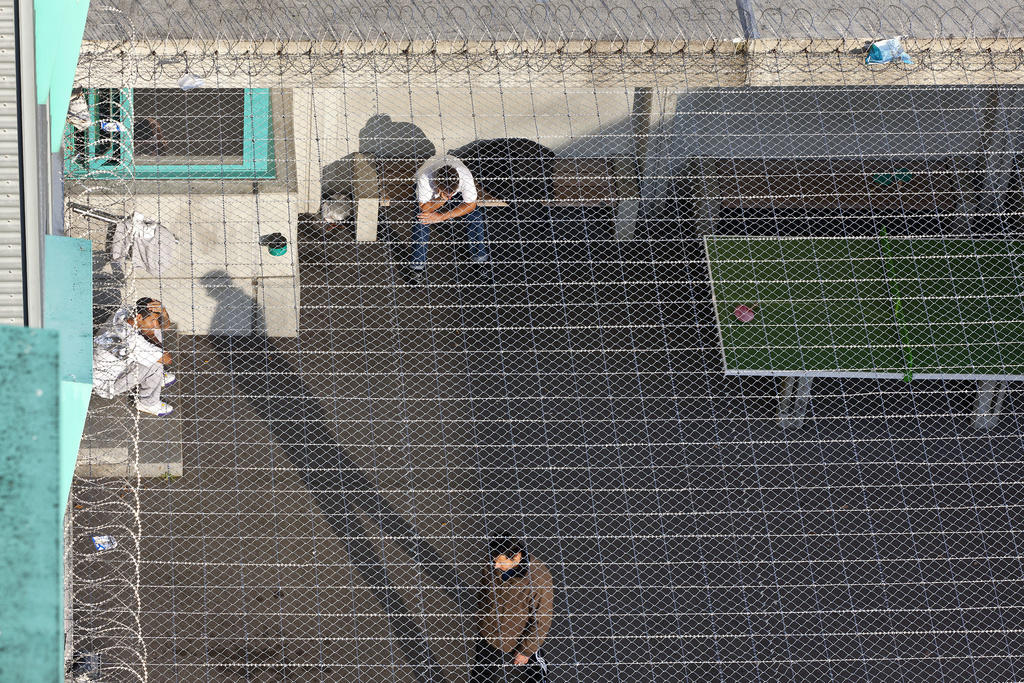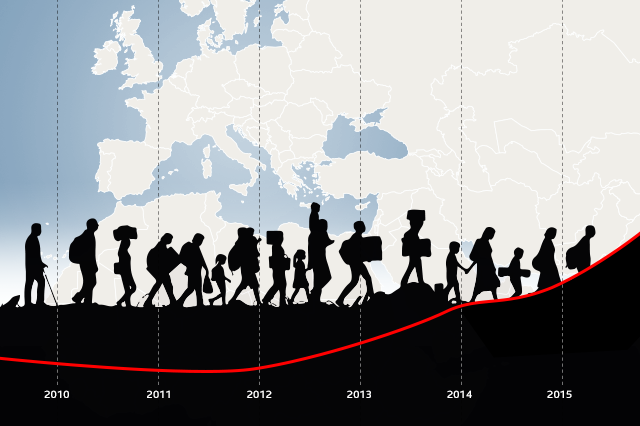
Swiss deportations far outpace EU’s

While Switzerland sent nearly 57% of its rejected asylum seekers back home in 2017, the average figure for EU nations was just under 37%.
As newspaper SonntagsBlickExternal link reported on Sunday, the figures come from an internal paper from the State Secretariat for Migration (SEM)External link. The reason for the high percentage is that hardly any other country made more return agreements than Switzerland that year, namely 64, as SEM spokesman Daniel Bach told news agency Keystone-SDA on Sunday.
The SEM paper, dated April 11, also points out that Switzerland consistently applies the Dublin AgreementExternal link – transferring considerably more people to other Dublin states than it itself takes from them.
+ How does asylum work in Switzerland?
However, Bach denied SonntagsBlick’s claim that Switzerland was sending rejected asylum seekers back to conflict zones. According to the SEM paper, Switzerland is “anxious in individual cases to implement legally binding instructions to these states as well”. The list of such deportations includes a special flight to Iraq in 2017, a return to Somalia in November 2018 with a police escort, and a return to Afghanistan in March of this year – the first after a blockade lasting nearly two years.
Afghanistan as a whole is not classified as a war zone; some regions, including the capital Kabul, are considered reasonable for a return. This assessment has not changed, Bach told Keystone-SDA. The same applies to Somalia. SEM investigates the individual risk of persecution in the event of repatriation.

More
Are the Swiss too strict about the Dublin accords?

In compliance with the JTI standards
More: SWI swissinfo.ch certified by the Journalism Trust Initiative
















![The four-metre-long painting "Sonntag der Bergbauern" [Sunday of the Mountain Farmers, 1923-24/26] had to be removed by a crane from the German Chancellery in Berlin for the exhibition in Bern.](https://www.swissinfo.ch/content/wp-content/uploads/sites/13/2025/12/01_Pressebild_KirchnerxKirchner.jpg?ver=bb19e376)














You can find an overview of ongoing debates with our journalists here . Please join us!
If you want to start a conversation about a topic raised in this article or want to report factual errors, email us at english@swissinfo.ch.